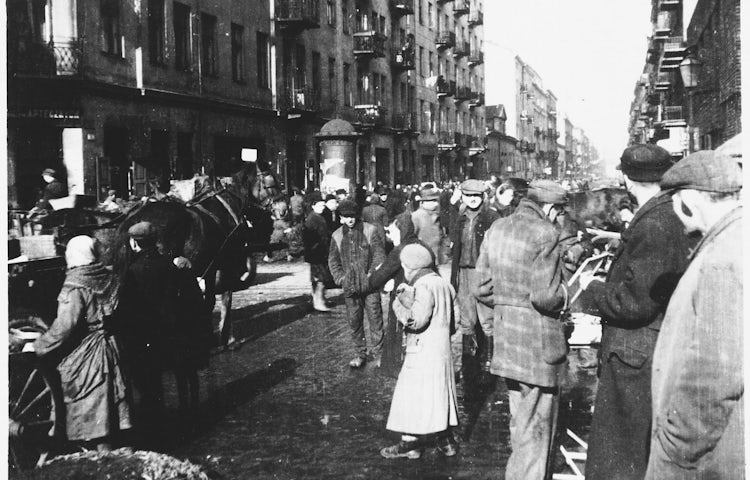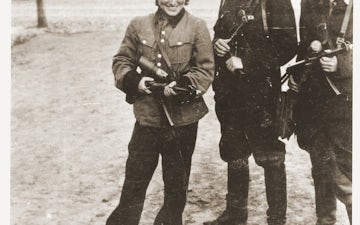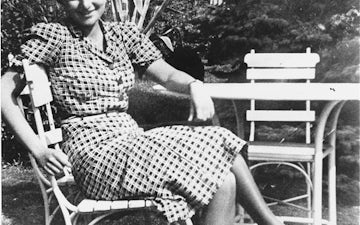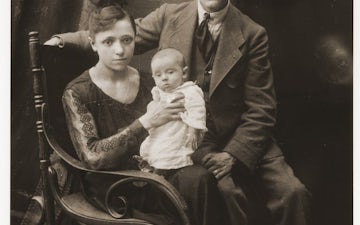
Mordechai Anielewicz was born in Warsaw in either 1919 or 1920. In his teens, he became active in the Zionist youth movement, Hashomer Hatzair. When war broke out, along with many young people from the movement, he became active in the resistance, initially attempting to organise illegal immigration to Mandate Palestine from Soviet-occupied Lithuania. After being arrested by the Soviet authorities, he volunteered to organise Hashomer Hatzair activists in German-occupied territory. Along with many other young people, he travelled around Poland, gathering news and helping to publish an underground newspaper.
Anielewicz started to organise an armed resistance movement in the Warsaw Ghetto as early as June 1941, after hearing the first reports of mass murders of Jews by the Einsatzgruppen. He faced opposition from many in the Ghetto, who believed armed resistance would have unacceptable consequences for the most vulnerable in the ghetto. The Nazi deportations of summer 1942 took almost all the children and elderly from the Ghetto to be murdered in Treblinka. The 60,000 remaining Jews in the Ghetto were mostly young adults who realised that destruction would be the result whether they fought or not. In November 1942, various Jewish underground groups merged into the ZOB (Zydowska Organizacja Bojowa: Jewish Fighting Organisation), commanded by Anielewicz.
After an initial series of skirmishes in early 1943, the ZOB spent the period before April preparing as best they could for an all-out struggle. On 19 April 1943, the Germans attempted to start the final deportations. For the next three weeks, the ZOB fought building to building, forced the Nazis to bring reinforcements into the Ghetto and to raze the Ghetto to the ground. The ZOB headquarters was destroyed on 8 May 1943. Anielewicz, along with almost all the ZOB leadership, was killed. His last known letter explained the uprising as simply a matter of fulfilling his hopes for Jewish resistance: “My life’s dream has come true; I have lived to see Jewish resistance in the ghetto in all its greatness and glory.”




